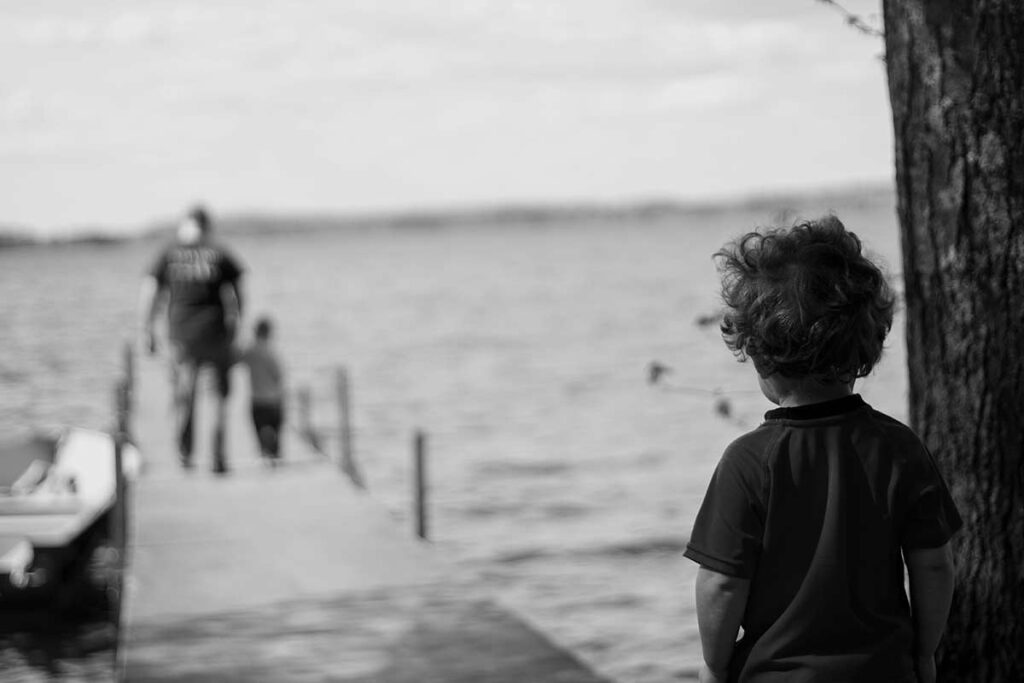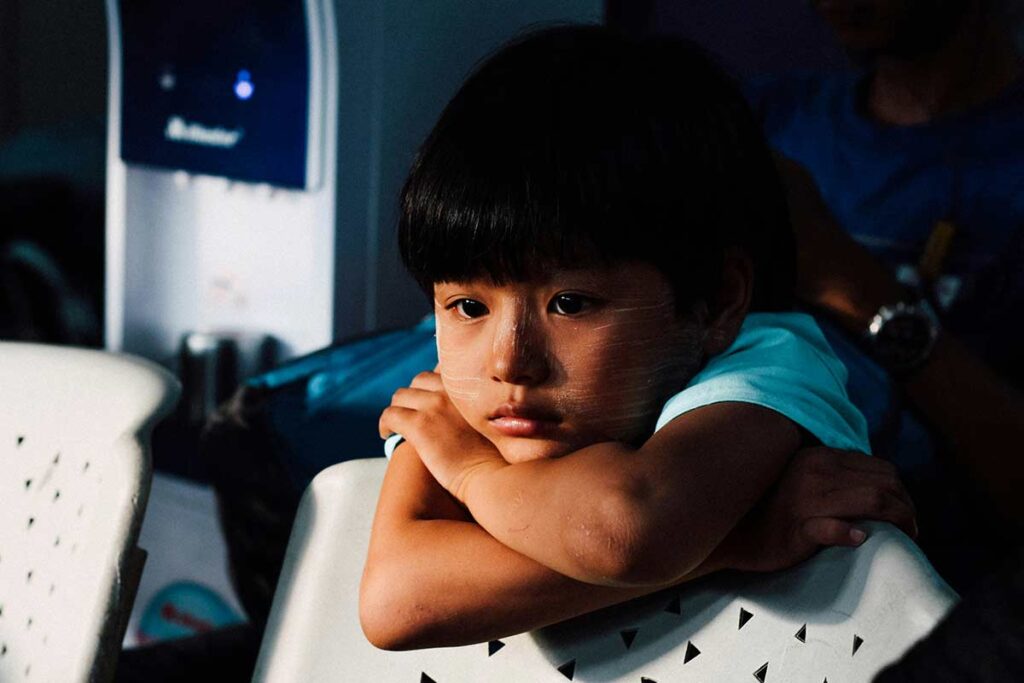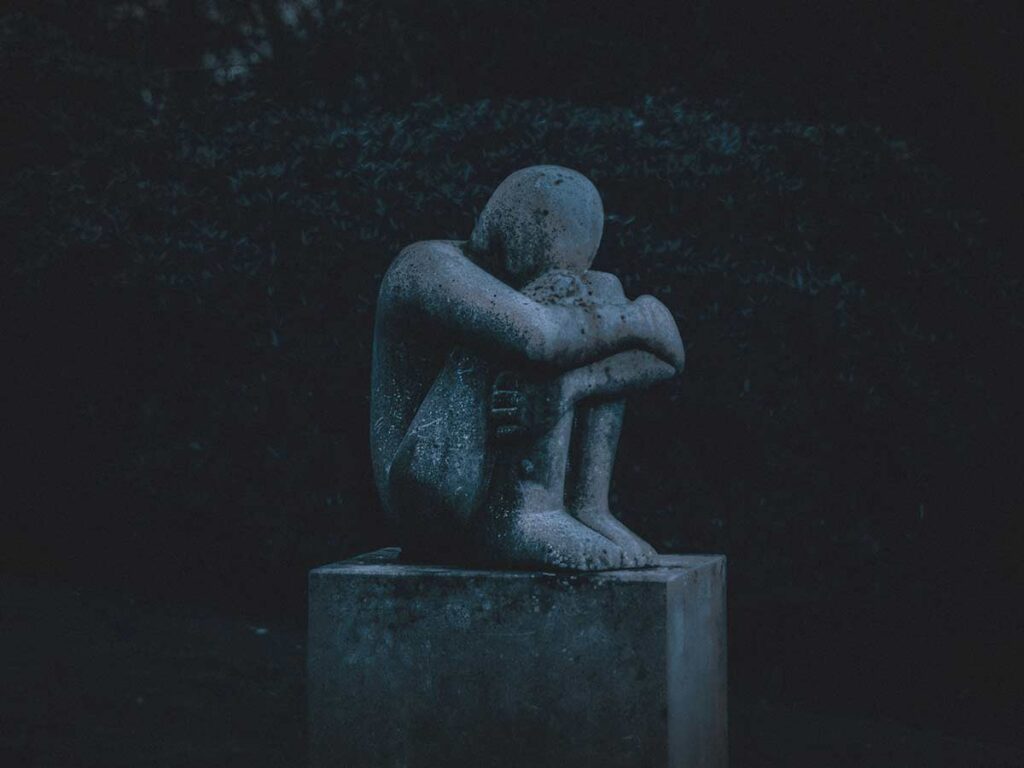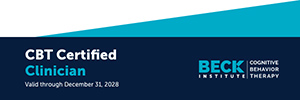Many adults walk through life carrying the weight of unresolved trauma from their childhood, often without realizing its impact on their psychological functioning. Childhood trauma affects individuals deeply, shaping their adult life in profound ways. Identifying its signs is the first step to heal from unresolved childhood trauma.
Childhood trauma can include physical or sexual abuse, emotional and physical neglect, witnessing domestic violence, or being caught in a high conflicted parental separation, among other stressful events. It is often associated with mental health problems, like depression, anxiety, panic attacks, relationship problems and other mental health issues. The journey to healing requires understanding how childhood trauma affects one’s life. With proper support and therapy, it is possible to overcome the difficulties of the past and embark on a path to recovery.
Understanding the Roots of Childhood Trauma
Understanding the roots of childhood trauma involves exploring the events and circumstances that lead to the long lasting psychological impact. Trauma can stem from acute events like physical, sexual, or emotional abuse or neglect, or any other chronic stressful event, including natural disasters. Recognizing the factors that constitute the traumatic event can be the first step towards healing.
What Constitutes Childhood Trauma?
Childhood trauma encompasses a range of experiences that leave a long lasting impact on an individual’s emotional well-being. It includes not only physical or sexual abuse or the death of a loved one, but also emotional abuse, childhood chronic illness, and neglect. Understanding what constitutes childhood trauma is crucial for healing.
The Connection Between Trauma and Memory
The connection between trauma and memory plays a significant role in how childhood trauma affects individuals. Traumatic events can affect perception of events, alter how memories are formed, stored, and recalled, leading to challenges in processing these experiences. This can result in fragmented memories, making it difficult for individuals to fully understand the impact of their trauma.
How Adverse Childhood Experiences Shape Adults
Adverse childhood experiences profoundly shape adult lives, impacting emotional health, relationship patterns, and even physical well-being. These experiences can lead to fears of intimacy or abandonment and lead to difficulties in managing emotions. Further it can place the individual at higher risk for developing mental health problems. Understanding this connection is the first step in treatment.
Identifying Symptoms of Childhood Trauma in Adults
Many adults who went through difficult experiences in childhood struggle with emotional problems that affect their daily lives. These problems can reflect the signs of past trauma. If you’re facing these challenges, it’s important to know you’re not alone and help is available.
Psychological or Emotional Symptoms
Emotional symptoms of childhood trauma can include emotional dysregulation, persistent sadness, anxiety, intense fears, and feelings of emptiness. These symptoms often reflect the inner turmoil that survivors of childhood trauma face, making it challenging for them to achieve and maintain emotional stability.
Physical Manifestations and Health Consequences
Childhood trauma can also have physical manifestations and health consequences, affecting the body in addition to the mind. Recognizing these physical symptoms is crucial for a comprehensive approach to healing.
Physical Symptoms
Physical symptoms of childhood trauma can include chronic pain and sleep disturbances, which may not always be directly linked to the trauma by the individual. These symptoms can significantly impact daily functioning and overall well-being.
Impact on Physical Health
The impact of childhood trauma on physical health can be far reaching, with adults who experienced trauma being at a higher risk for developing chronic illnesses and engaging in behaviors that increase the risk for health issues. Addressing these physical health consequences is an important aspect of healing from trauma.
Cognitive and Behavioral Signs of Trauma
Childhood trauma can affect cognitive and behavioral patterns, leading to relationships struggles and challenges in adult life, including maintaining emotional stability, finding happiness, Recognizing these signs is essential for addressing and healing from the trauma.
Cognitive Symptoms
Cognitive symptoms of childhood trauma can manifest as difficulties in concentration, memory issues, and distorted perceptions of self and others. These symptoms can significantly impact an individual’s ability to function and succeed in adult life.
Behavioral Symptoms
Behavioral symptoms of childhood trauma often involve coping mechanisms that may be maladaptive, such as substance abuse, self-harm, or avoidance behaviors. Recognizing these symptoms is crucial for seeking appropriate support and therapy to address the underlying trauma.
The Lingering Shadow: Childhood Trauma in Adults
Childhood trauma in adults often remains hidden, casting a lingering shadow over a person’s life. This trauma can stem from various sources, including physical abuse, emotional abuse, natural disasters, or witnessing distressing events. Adults may not initially recognize the effects of childhood trauma, as they can manifest in subtle ways, such as problems forming attachments or experiencing emotional regulation difficulties. Some individuals might have flashbacks or nightmares, while others could develop dissociative amnesia, a condition where they cannot recall significant segments of their childhood. Understanding how trauma impacts one’s behavior and emotional reactions is crucial for recognizing the need for support.
Unveiling Hidden Traumas
Unveiling hidden traumas from one’s childhood requires a deep dive into past experiences, including those seemingly innocuous. Unresolved trauma, such as childhood illness or prolonged hospital stays, can significantly affect adult life, impacting one’s mental and emotional wellbeing. Recognizing and acknowledging these experiences as traumatic is a vital step towards healing. It allows individuals to understand their reactions and behaviors better, paving the way for effective treatment and recovery.
Traumatic Stress: Recognizing the Unrecognized
Recognizing the signs of PTSD in oneself can be challenging, especially when the trauma is not acknowledged or understood. Difficulty forming attachments and experiencing heightened emotional responses can indicate the presence of difficulties related to trauma. By acknowledging these signs and seeking professional help, individuals can begin to understand their experiences and work towards recovery. Recognizing the signs of trauma is a crucial step in the healing journey, allowing for targeted interventions and support.
The Road to Healing: Overcoming the Effects of Childhood Trauma
The United States has many resources available to assist individuals to overcome the effects of childhood trauma. It is important to seek the help of mental health professionals. The therapeutic process involves recognizing the trauma, understanding its impact on one’s life, and learning strategies to manage its effects. Therapy plays a significant role in this journey, offering a safe space for individuals to explore their experiences and develop more adaptive coping mechanisms. The road to healing is a personal and often challenging journey, but with the right support in place, individuals can work towards a healthier, more fulfilled life.
Therapy Approaches to Treating Trauma and PTSD
Various therapy approaches exist for treating trauma and PTSD, each tailored to meet the individual’s specific needs. These therapies aim to help individuals process their traumatic experiences, learn to develop coping strategies, and rebuild a sense of safety and trust. Therapists may use a combination of techniques, including talk therapy, cognitive-behavioral therapy (CBT), and mindfulness practices, to support individuals in their healing journey. The choice of therapy depends on the person’s unique experiences, symptoms, and goals.
Cognitive Behavioral Therapy (CBT) For Trauma
Cognitive Behavioral Therapy (CBT) is a highly effective approach for treating trauma and PTSD. It focuses on identifying and challenging negative thought patterns related to the traumatic experience, thereby altering the emotional response. CBT for trauma helps individuals make sense of their trauma, reducing the power it holds over them.
Patients learn to recognize triggers and develop healthier ways of coping with distressing memories and emotions. This therapy aims to empower individuals by equipping them with the tools they need to manage their symptoms and improve their quality of life. Through CBT, many find a new perspective on their trauma, allowing them to move forward with greater resilience.
CBT Interventions For Trauma
CBT interventions for trauma often involve exposure therapy and cognitive restructuring. Exposure therapy gently encourages individuals to face their fears related to the trauma in a safe and controlled environment, reducing the fear over time. Cognitive restructuring helps individuals identify and challenge irrational or harmful thoughts related to their traumatic experiences.
Another aspect of CBT interventions may address childhood illness as a traumatic event, helping individuals reframe their understanding and emotional response to their illness. By addressing these aspects, CBT provides a comprehensive approach to treating trauma, focusing on healing both the mind and emotions.
Online Therapy for Trauma Can Help
Online therapy has emerged as a valuable resource for those seeking help for trauma. It offers flexibility, accessibility, and privacy, making it easier for individuals to start their healing journey. Online CBT therapy sessions can be just as effective as face-to-face meetings, providing a platform for individuals to work through their trauma with professional guidance. This mode of therapy can be particularly beneficial for those with busy schedules or those who prefer the comfort of their own home.
EMDR Therapy Is Effective Without Reliving the Trauma
Eye Movement Desensitization and Reprocessing (EMDR) therapy is a unique and effective treatment for trauma that does not require individuals to relive their traumatic experiences. Instead, EMDR focuses on changing the way traumatic memories are stored in the brain, reducing their intensity and the distress they cause. This therapy involves guided eye movements while recalling the trauma, helping to desensitize the individual to the emotional impact of the memory. EMDR has proven effective for many, offering hope and healing without the need to revisit painful memories.
Strategies for Emotional Regulation and Building Relationships
Developing strategies for emotional regulation and building healthy relationships are crucial aspects of recovering from childhood trauma. Emotional regulation involves learning to manage intense emotions in constructive ways, while building relationships focuses on establishing trust and safety with others. These skills are often compromised by childhood trauma but can be rebuilt through therapy and personal growth efforts. By focusing on these areas, individuals can enhance their resilience and improve their overall wellbeing.
Innovative Therapies in Trauma Recovery
Innovative therapies, including art therapy, music therapy, and animal-assisted therapy, offer new avenues for healing from childhood trauma. These therapies provide alternative ways to express feelings, process traumatic events, and connect with others. By engaging in creative or interactive activities, individuals can discover new aspects of themselves and develop a stronger sense of identity beyond their trauma. These innovative approaches complement traditional therapies, creating a holistic healing experience.
Support and Resources for Those Afflicted by Childhood Trauma
For those in Long Island and Port Jefferson, NY, seeking support and resources for childhood trauma, numerous options are available. Local mental health clinics, community centers, and online platforms offer access to therapists trained in cognitive behavioral therapy and other effective treatments. Recognizing the symptoms of trauma and seeking help is a vital step towards recovery. With the right support, individuals can overcome the effects of trauma and lead fulfilling lives.
How to Find the Best Treatment for Childhood Trauma
Finding the best treatment for childhood trauma involves researching local therapists in Port Jefferson, NY, with expertise in cognitive behavioral therapy and other evidence-based treatments. Many therapists specialize in addressing the impact of domestic violence and other traumatic events. It’s crucial to choose a therapist who understands the unique symptoms of trauma and can provide a tailored treatment plan. Online directories and referrals from healthcare providers can be valuable resources in this search.
The Role of Community and Support Networks in Healing
In Suffolk County, NY, community and support networks play a crucial role in the healing process for adult survivors of childhood trauma. Local support groups, both in-person and online, offer a space for sharing experiences and coping strategies. These networks provide emotional support, understanding, and a sense of belonging, which are essential for recovery. Engaging with community resources and connecting with others who have similar experiences can significantly enhance the healing journey.
Conclusion: Transforming Pain into Purpose
Transforming the pain of childhood trauma into purpose is a powerful journey. It involves recognizing the trauma, seeking professional help, and gradually rebuilding one’s life. With the right support and therapy, individuals can overcome the challenges posed by their past and find new meaning and direction. Embracing the journey of recovery and resilience allows for personal growth and the opportunity to lead a fulfilling and empowered life.
Embracing the Journey of Recovery and Resilience
Recovery from childhood trauma is a path filled with challenges and victories, much like climbing a mountain with both steep inclines and breathtaking views. It’s about understanding that healing is not a destination but a journey, one that requires patience, self-compassion, and resilience. As individuals embark on this journey, they learn to transform their pain into a purpose, finding strength in their struggles and building a life that reflects their new-found resilience. Embracing this journey is about acknowledging the past while moving forward, armed with the tools and support to create a fulfilling future.











